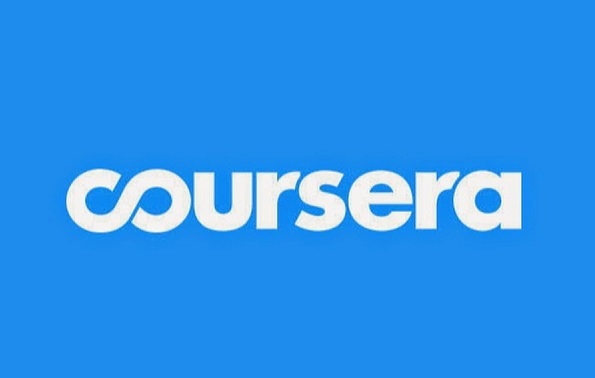Online learning platform Coursera now offering free pricing options

Online learning platform Coursera has announced free versions of Coursera for Campus. The platform has also upgraded features to address the critical and long-term needs of higher education across the region and worldwide.
The new features allow universities to deliver academic integrity for credit-bearing online learning, improve student employability, and author private courses. As universities move toward a phased reopening across the country, Coursera offers higher learning institutions the ability to adopt a blended approach to learning, as students and faculty ease in to the new normal.
The announcement builds on the momentum of the Campus Response Initiative, which was launched in March to give students and faculty free access to Coursera for Campus during pandemic-related closures. Currently, more than 3,700 institutions use Coursera for Campus to deliver online learning to over 2.4 million students. In Kenya, 3,290 learners have enrolled in 27,771 courses.
“The pandemic has been a catalyst for universities to make online learning the core of their student experience,” said Jeff Maggioncalda, Coursera CEO. “We’ve grown from 30 universities using Coursera for Campus to over 3,700 in just five months, and these upgrades will help them better deliver for-credit online learning and job-relevant skills for their students.”
The upgraded features of Coursera for Campus enable universities to:
Bridge the digital divide with mobile learning that can be downloaded and viewed offline
Coursera for Campus helps universities equally serve students including those with limited connectivity, bandwidth, and devices. 70% of Coursera for Campus students used a mobile device for their learning during the pandemic. With mobile and offline learning, students can download courses, synchronize progress and quizzes, take notes with highlights, and calendar sync – all optimized for low data consumption. The platform also includes digital-first engagement tools to maximize learning effectiveness like bite-size videos, in-browser programming assignments, and Guided Projects for hands-on learning.
Deliver credit-bearing online learning with advanced academic integrity features
Faculty can now administer secure, high-stakes exams and detect plagiarism in assignments on Coursera for Campus. It supports online proctoring with integrations like ProctorU and allows exams to be timed and scheduled. For assignments, integrations with tools like Turnitin auto-detect plagiarism for both students and graders. The platform also supports plagiarism deterrence by disabling URL sharing and copying of peer reviews, while Question Banks make it easy to author rigorous, custom assessments at scale.
Improve student employability with job-relevant learning
The pandemic has placed enormous pressure on job opportunities, and students need to graduate with high-demand skills to gain employment. Using Coursera for Campus, universities can help students gain marketable skills with Professional Certificates from industry educators like Google, IBM, Facebook, Intuit, Salesforce, and Amazon. Launched in March, Guided Projects give students hands-on experience with tools like Python, SQL, HTML, Jupyter Notebooks, Java, R, Tensorflow, and Google Analytics. Students can learn these skills in under two hours and apply them in interviews and on-the-job.
Build blended online learning programs with ready-made courses and private authoring tools
With online learning now core to the student experience, universities need an effective way to create and curate high-quality online curricula. In addition to 4,200 ready-made online courses from leading universities and companies, faculty now have access to the same powerful authoring platform as Coursera’s university content partners. They can efficiently build custom courses, hands-on projects, assessments, and even embed Zoom recordings with Live2Coursera.
With Coursera for Campus, universities in the Middle East and Africa served more than 174,000 students who have enrolled in over 1.9 million courses. Higher education institutions have used Coursera for Campus to enable continuous learning, offer supplemental content to their degree programs, and prepare students for jobs and internships. Among them are leading institutions like Africa Nazarene University, University of Johannesburg and Covenant University.
“We chose Coursera to strengthen our existing course offering, infuse work skills into all elements of our teaching, expand our offering in the domains of artificial intelligence, machine learning and data literacy and be a global education brand,” said Dr. Stanley Makhosi Bhebhe, Africa Nazarene University Vice Chancellor. “We’ve had outstanding training and support from Coursera in onboarding students. In just four weeks, more than 1,100 students have enrolled in over 4,400 courses.”
With three offerings, Coursera for Campus is committed to supporting students and institutions in every stage of online learning:
- The Student plan gives every university student free access to unlimited Guided Projects for hands-on learning and one course annually*.
- The Basic plan provides up to 20,000 free student licenses to every university. Every license includes access to unlimited Guided Projects and one course annually. This long-term free offering includes basic plagiarism deterrence features.
- The Institution plan provides unlimited Guided Projects and unlimited course enrollments for each student license. It also enables universities to author, grade, and manage for-credit online learning programs with enhanced academic integrity.
With this launch, Coursera for Campus says it is ready to meet the enduring needs of higher education institutions worldwide
Follow us on Telegram, Twitter, Facebook, or subscribe to our weekly newsletter to ensure you don’t miss out on any future updates.




